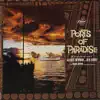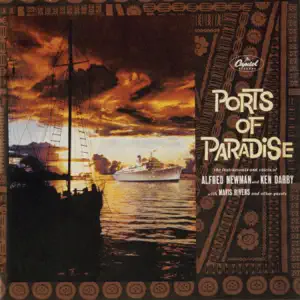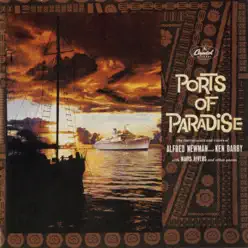


Acerca de Ken Darby
b. 13 May 1909, Hebron, Nebraska, USA, d. 24 January 1992, Sherman Oaks, California, USA. A prolific composer, arranger and musical director for records and films, Ken Darbys Singers and the John Scott Trotter Orchestra backed Bing Crosby on what is said to be the biggest-selling record of all time - White Christmas. That was in 1942, and Darbys vocal group was present on several other appealing Crosby sides during the 40s, including If You Please, Riders In The Sky, Far Away Places, Anniversary Song, and two more million-sellers, Sunday, Monday, Or Always (1943) and Now Is The Hour (1948). By this time Darby was also working in films, having done some of the orchestral and vocal arrangements for the classic The Wizard Of Oz (1939). From then on, he served in various capacities, such as music supervisor, musical associate, choral, vocal or musical director, or arranger, on numerous features which included Step Lively (1944), State Fair (1945), Song Of The South (1946), So Dear To My Heart (1948), The Adventures of Ichabod And Mr. Toad (1949), Rancho Notorious (1952), Tonight We Sing (1952), The Robe (1953), The Egyptian (1954), Hound Dog Man (1959), Elmer Gantry (1960), The Canadians (1961), How The West Was Won (1962), The Greatest Story Ever Told (1965), and many more. Darby also contributed occasional songs or lyrics to films such as Walt Disneys Make Mine Music (1946, Casey At The Bat, with Ray Gilbert and Eliot Daniel), Golden Girl (1951, Sunday Mornin, with Daniel), The Guy Who Came Back (1951), With A Song In My Heart (1952, Wonderful Home Sweet Home), River Of No Return (1954), The Garden Of Evil (1954), andBus Stop (1956, The Bus Stop Song, with Frank Skinner).nn Throughout much of his career Darby collaborated with Alfred Newman, one of the doyens of Hollywood film music. They were awarded Oscars for their work on The King And I (1956) and Camelot (1967), and were nominated on a further three occasions, for South Pacific (1958), Flower Drum Song (1961), and How The West Was Won (1963). Darby won another Academy Award with André Previn for the scoring of Porgy And Bess (1959). The duo also won Grammys for the Porgy And Bess soundtrack album.
Discografía de Ken Darby
1 disco

Ports of Paradise
1960
Nosotros
Notas
